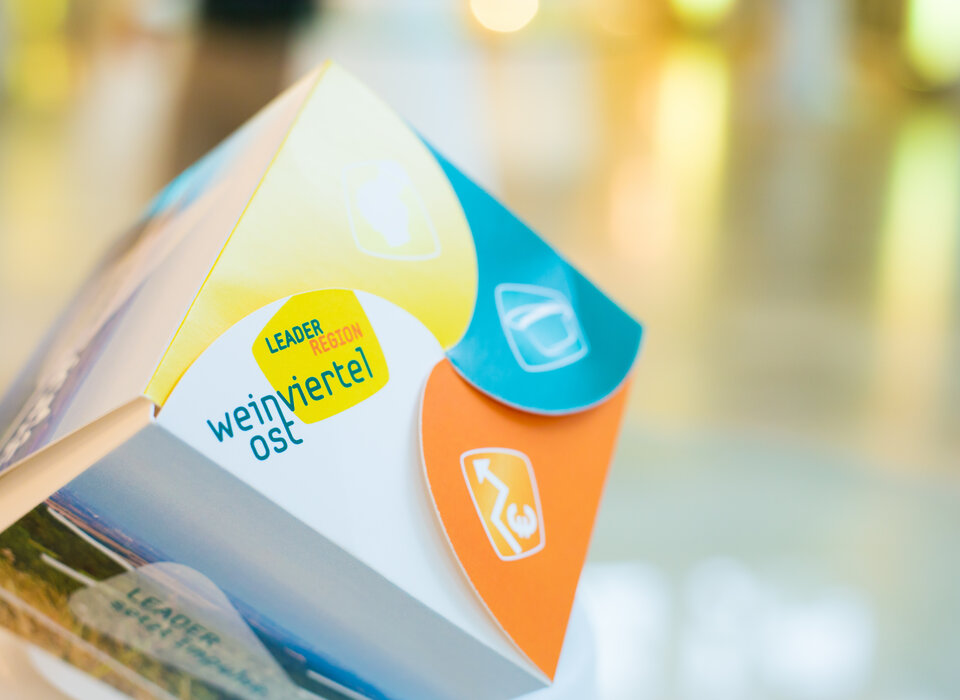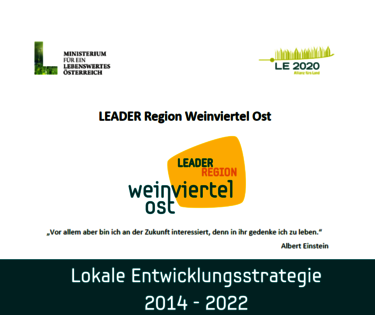A look back at
the funding period
2014 - 2022
„Visions are the guiding principles of the present and they shape the future.“
(Rainer J. Stawski)
Only local citizens are able to define the vision for the future of our region. Strategies provide the roadmap for a better future and the call for action over the next seven years in the Weinviertel. The local development strategy was created in autumn 2013 with the involvement of around 400 citizens and accounting for regional circumstances, strengths and weaknesses. It forms the basis for future regional development in eastern Weinviertel. Despite the success of the previous LEADER 2007 – 2013 funding period, its continuation was by no means a foregone conclusion. The new local development strategy for 2014– 2020 was submitted to the Federal Ministry of Agriculture, Forestry, Environment and Water Management on 31 October 2014. Half a year later, in June 2015, Weinviertel Ost was selected as one of the Austrian LEADER regions. This announcement laid paved the way for seven exciting years for the region, with the realisation of the local development strategy and projects in recent years.
Aktionsfelder:
- Value enhancement
- Natural resources and cultural heritage
- Structures and functions for the common good

Field of action 1: Value enhancement
- Strengthening regional agriculture and forestry and expanding the range of regional products
- Helping the regional tourism industry grow
- Bolstering the regional economy

Field of Action 2: Natural resources and cultural heritage
- Protecting the cultural landscape and preserving our regional natural and cultural heritage.

Field of Action 3: Structures and functions for the common good
- Promoting sharing practical experience, training and further education along with the principle of lifelong learning
- Imparting regional knowledge and raising regional awareness
- Revitalising living space and developing more leisure and local recreation facilities
- Improving the sense of community and tackling demographic challenges



